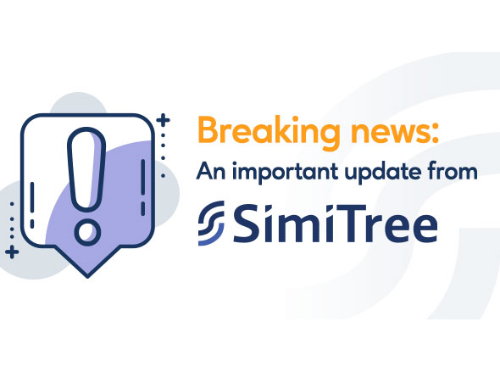After months of anticipation, the Centers for Medicare and Medicaid Services (CMS) has just made available revisions to Hospice-Appendix M of the State Operations Manual (SOM) and the Hospice Basic Surveyor Training (QSO-23-08 Hospice).
In a memorandum published on Jan. 27, 2023, CMS said the hospice SOM changes and revised interpretive guidelines for surveyors are effective immediately.
SOM changes for hospice have been anticipated since The Hospice Act passed in December 2020, establishing survey requirements for and enforcement remedies against certified hospice programs under Medicare. Subsequent hospice regulatory requirements were published in the 2022 Home Health Final Rule in November 2021.
“The goal for the SOM revisions is to promote efficiency and effectiveness in the hospice survey process and identify low quality-of-care deficiencies,” said Kim Skehan, Managing Director, SimiTree Compliance and Regulatory. “To achieve this goal, CMS has modified the hospice survey protocol to refine the focus on quality of care.”
In its Dec. 27 memorandum, CMS states that revisions to the SOM Appendix M and complementary revisions to the CMS Hospice Basic Surveyor Training will equip surveyors from all surveying entities (State Agencies and Accrediting Organizations) to focus on the quality of care and facilitate consistency.
Hospice SOM changes
Skehan said key points include:
- There are no changes to CoPs or Standards other than the following two exceptions:
- The redesignation of certain L Tags, notably the Condition of Participation at 418.110, Hospices that Provide Inpatient Care Directly. This L Tag has been re-designated from L719-L758 to L820-L862.
- 418.113 Condition of Participation: Emergency Preparedness has been incorporated into the SOM. The regulations pertaining to Emergency Preparedness have not changed in accordance with Appendix Z of the SOM.
- Two specific phases. Changes address survey process and updates related to specific interpretive guidelines. CMS divides changes to the survey process and detailed guidance into two specific phases.
The two phases are:
- Phase I identifies the Conditions of Participation (CoPs) that contribute to understanding the quality of care delivered directly to patients, their caregivers, and families. While each of the 23 CoPs will continue to have equal weight, special attention is directed to those Phase I CoPs directly impacting patient care. Phase I Core CoPs include the following, along with 11 associated quality of care CoPs:
- 418.52 Patient Rights,
- 418.54 Initial and comprehensive assessment of the patient and
- 418.56 Interdisciplinary Group, care planning, and coordination of services.
- Phase II identifies CoPs that, while still integral to the survey process, focus more on the administrative functions and operations of hospice services. The Phase II Core CoP includes the following, along with 7 associated quality of care CoPs:
- 418.58 Quality Assessment and Performance Improvement
- 8 survey tasks and a new Task 3. There are now 8 survey tasks, including a new Task 3: Sample Selection which provides more detail regarding sampling strategy for record reviews and home visits. The sampling strategy increases the number of records and ensures that a broader range of hospice activities are investigated (live discharges, bereavement follow-through, care for patients needing higher levels of care) from all of the locations where the hospice operates (‘multiple locations’), and the variety of home settings where patients live.
- Pre-survey task. Other changes include an enhanced pre-survey task to boost surveyors’ understanding of the hospice’s operations and provide a foundation for the onsite survey. Surveyors are directed to public media for potential concerns about the hospice, the hospice’s website, CMS Care Compare.
- Phase I identifies the Conditions of Participation (CoPs) that contribute to understanding the quality of care delivered directly to patients, their caregivers, and families. While each of the 23 CoPs will continue to have equal weight, special attention is directed to those Phase I CoPs directly impacting patient care. Phase I Core CoPs include the following, along with 11 associated quality of care CoPs:
The full text of the QSO Memorandum can be found here.
“Overall, these are positive changes that provide more structure and clarity for the survey process,” Skehan said. “Surveyor education and subsequent CMS oversight to ensure implementation will be key.
“For hospice providers, understanding the changes in the survey process and what this means in terms of their own survey readiness efforts will be very important. In addition, hospice providers are strongly encouraged to closely review the Phase I and Phase II standards, and revisions to the interpretive guidelines.”
Skehan and her team are planning a webinar to explain the hospice survey changes and interpretive guidelines, and make a registration link available soon. More information on this topic, including a registration link for the webinar, will be available in the February issue of The Insider, the free monthly email report with news, insight and analysis. Sign up here to make certain you don’t miss it.
SimiTree can help
The compliance and regulatory experts at SimiTree are current, former, and certified surveyors, who have extensive experience with CMS and state survey agencies, as well as ACHC, CHAP and Joint Commission. Our mock surveys, training, survey readiness and follow up solutions assist providers in understanding the CoPs and implementing strategies for success.
Use the form below to ask us your compliance questions or schedule readiness training.

